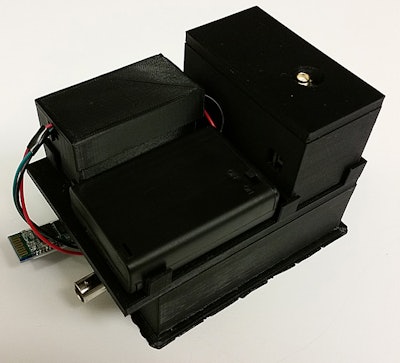
More than 48 million people in the U.S. get sick each year from eating or drinking food or beverages contaminated with pathogens, chemicals or toxins, such as E. coli.
A new approach, developed by researchers at Purdue University, works with smartphones and laptops to detect the presence of E. coli in food samples. The portable device can be used for on-site testing of food samples.
“The portability and on-site results our new device provide will be a big benefit for the food safety industry,” said Euiwon Bae, a senior research scientist of mechanical engineering in Purdue’s College of Engineering who co-led the team who developed the technology.
Currently, food samples must be shipped to the laboratory where they are tested for the presence of foodborne pathogens with costly benchtop equipment.
Glowing bacteria
The research team tested the device on artificially contaminated samples of ground beef from a local grocery store. The samples were rinsed and incubated with an enriched liquid containing a modified phage. The phage, a virus for bacteria, infects any harmful food bacteria present in the sample.
The infected samples can then be scanned with the portable silicon photomultiplier device, which emits a special kind of light that makes bacteria infected by the phage light up.
The portable scanner also contains an electrical circuit with an amplifier, comparator and microcontroller that can be used to send the resulting data to laptops and smartphones via Bluetooth technology, making the detection of possible threats to food safety quick and easy to detect.
The phage used was developed by Bruce Applegate, a professor of food science in Purdue’s College of Agriculture and is being commercialized by Phicrobe, a Purdue University-affiliated start-up founded by Applegate. Bae and Applegate are currently working to patent this new technology.
The research was published in the January edition of the journal, Applied Optics.
Like what you just read? Sign up now for free to receive the Poultry Future Newsletter.
















